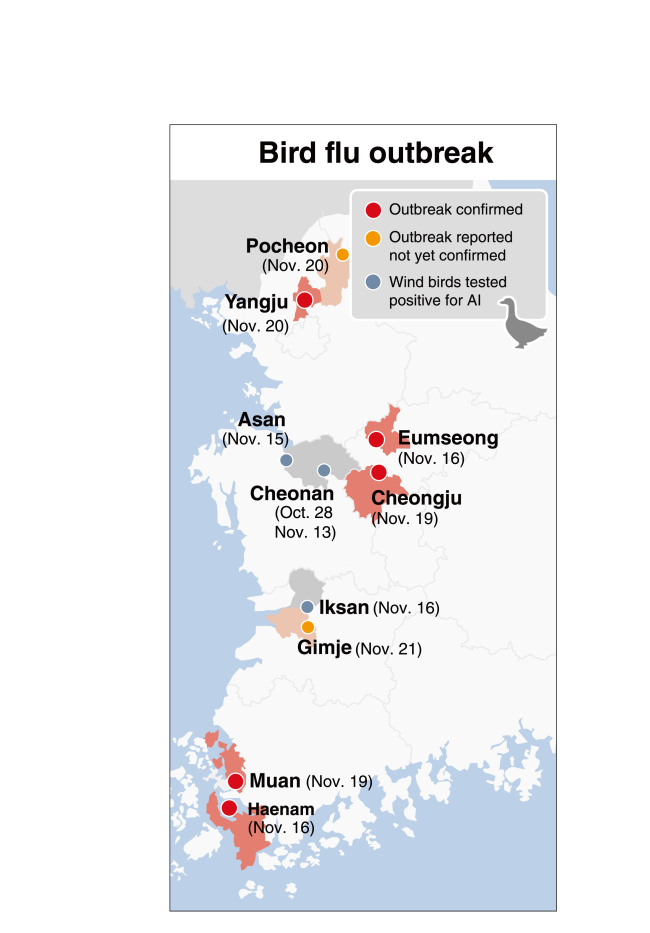The South Korean government stepped up quarantine measures to contain the outbreak of avian influenza Thursday, as a highly pathogenic strain of the bird flu virus shows signs of spreading across the nation.
The Ministry of Agriculture, Food and Rural Affairs raised the watch level to “alert” from “caution,” ordering every provincial government to run emergency operation centers and strengthen disinfection measures in all farming areas.

“The spreading pace of the animal disease is so fast that it will likely hit the western region and the entire nation,” the ministry said. “The H5N6 strain is more pathogenic than the H5N8 type that had been detected in the past.” This is the first time that South Korea has reported an outbreak of the H5N6-strain bird flu.
Five AI cases have been confirmed in the country since Nov. 16, when the first outbreak was reported at a chicken farm in Haenam, 423 kilometers south of Seoul.
Eight suspected cases were under examination as of Thursday, while three more suspected cases of wild bird infections were reported around the western coastal areas where large wintering sites for migratory birds are located.
The minister, after a meeting with experts, ruling Saenuri Party officials and representatives from the poultry industry, said it would intensify quarantine around wintering grounds of migratory birds and is also considering cordoning off areas adjacent to migratory bird habitats.
In neighboring China, there have been 16 cases of human infections of the H5N6 since 2014. Ten of those infected died.
“Since the exact cause of death for those who were infected with the H5N6 virus in China is still unknown, we believe eating well-cooked chicken or duck is safe,” said Saenuri Party Rep. Kim Gwang-lim during the meeting.
The quarantine authorities see migratory birds as the source of the H5N6 virus outbreak here as there have been no reports of infections through the movement of people or livestock.
Movement has been already banned within a 10-kilometer radius of farms where the virus was found.
The AI outbreak came nearly seven months after the last infection was reported on the western outskirts of Seoul on April 5. The country had cases of the poultry disease for nearly two years between January 2014 and November 2015.
By Kim Da-sol and news reports / (
ddd@heraldcorp.com)







![[Today’s K-pop] Blackpink’s Jennie, Lisa invited to Coachella as solo acts](http://res.heraldm.com/phpwas/restmb_idxmake.php?idx=644&simg=/content/image/2024/11/21/20241121050099_0.jpg)
